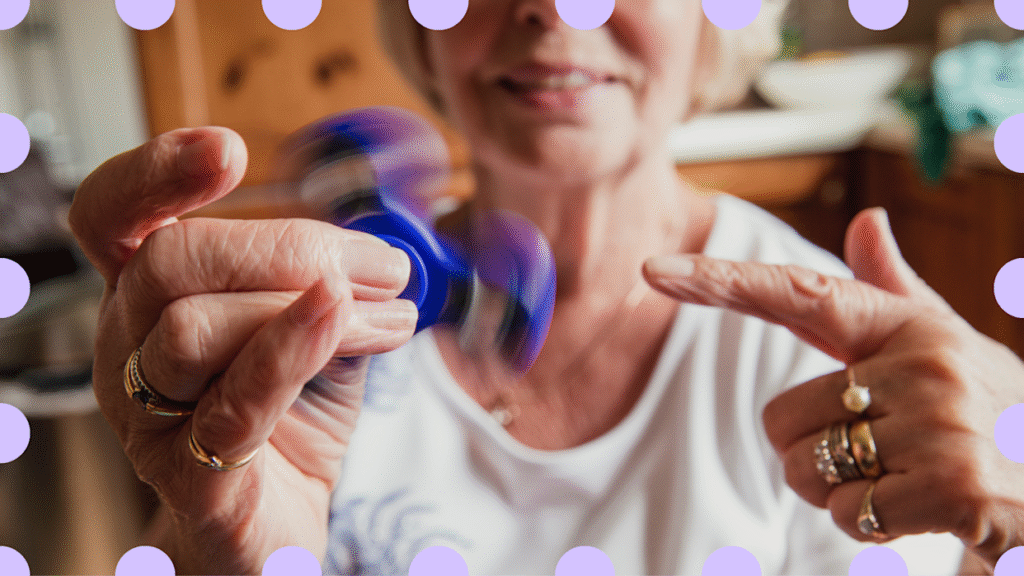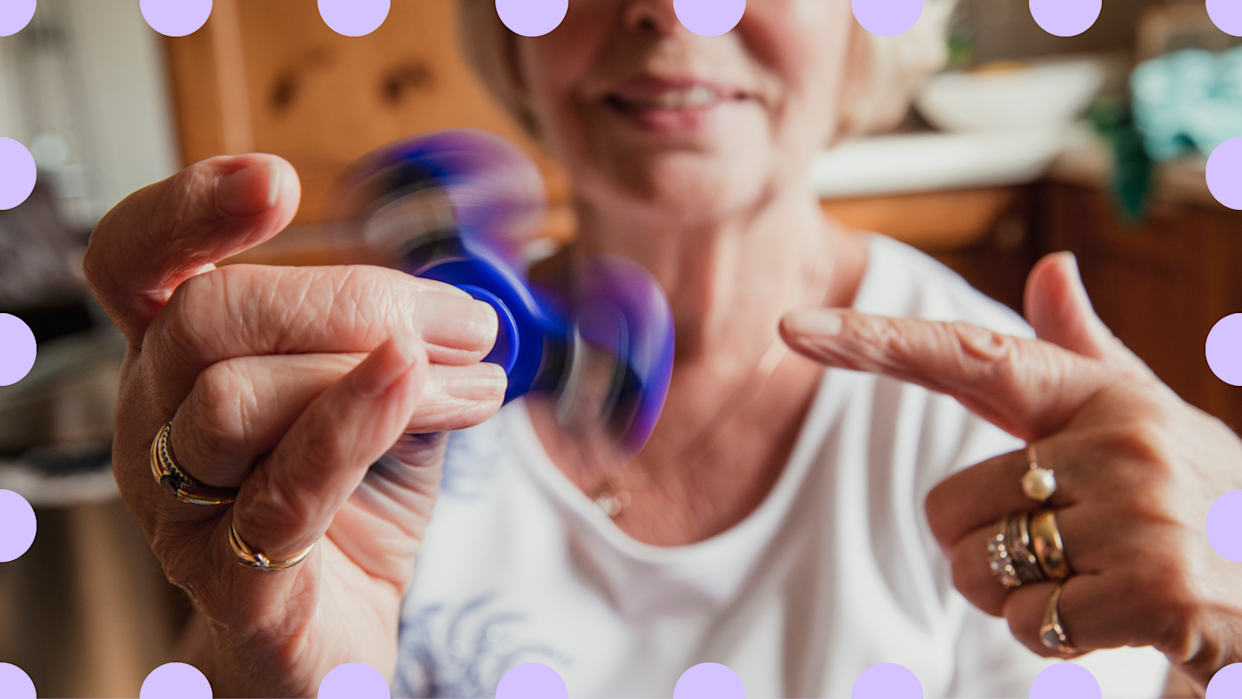Experts explain the potential benefits behind these popular stress-relief tools.

They may seem like children’s toys, but these products may offer an assist for easing anxiety and improving self-regulation. (Getty Images)
Life can feel overwhelming, and in those high-stress moments, it’s not always possible to stop everything for a deep-breathing session or grounding exercise. That’s where small, tactile tools like stress balls and fidget spinners come in—they offer a simple, discreet way to channel anxious energy and recenter yourself, whether you’re at home, in the office, or out in public.
So how do these tools actually help? According to Keisha Saunders-Waldron, a licensed clinical mental health counselor at Confidential Confessions, “Stress balls and fidget spinners serve as tools for sensory and motor stimulation, which can help distract, regulate emotions, and may even improve focus.” She explains that the repetitive action of squeezing or spinning engages the nervous system in a calming way, much like deep breathing or rhythmic movement. These tools offer an accessible form of self-regulation, particularly when more traditional coping methods aren’t within reach.
Read on to explore the benefits of stress-relief tools, discover who might gain the most from using them, and get recommendations on which products are worth trying.
Fidget spinners and stress balls have become popular tools for managing stress and anxiety, especially in environments where traditional coping strategies—like deep breathing or stepping away—aren’t practical. While the scientific evidence supporting their effectiveness is largely anecdotal, many mental health professionals recognize their value as short-term aids for emotional regulation and focus.
Potential Benefits
1. Grounding
Grounding helps bring attention away from distressing thoughts and into the present moment. As Keisha Saunders-Waldron explains, the repetitive motion of squeezing a stress ball or spinning a fidget tool stimulates the brain’s sensory pathways, giving it something predictable and calming to focus on. This can help soothe an overactive nervous system during stressful moments.
2. Self-Regulation
Fidget tools also promote nervous system regulation by reducing physical signs of anxiety, such as restlessness. Billy Roberts, an ADHD specialist, notes that people with ADHD can benefit from these tools as a way to externally manage energy and impulses, helping them maintain focus and composure.
3. Competing Behaviors
According to Dr. Anoop Singh, these tools may also help reduce compulsive behaviors like nail biting or hair pulling by offering a healthier “competing behavior” to redirect the user’s urge.
When and How to Use Them
Fidget spinners and stress balls are best used in moments of heightened stress or distraction—think work meetings, classroom settings, or high-pressure public situations. Dr. Pamela Walters frequently recommends them to clients who fidget or struggle to stay focused in stressful environments.
However, they aren’t long-term solutions or substitutes for deeper emotional work. Experts stress that while these tools can be helpful, they are most effective when paired with other coping methods like mindfulness, cognitive strategies, and professional therapy.
Safety and Considerations
- Children: Avoid small parts that may pose choking hazards. Also, teach kids how and when to use them to avoid misuse or creating distractions in places like school.
- Overstimulation: Some users may find the sensory input overwhelming, especially those with heightened sensory sensitivities.
- Awareness: Overuse can reduce situational awareness, so it’s important to use them appropriately and mindfully.
Who Might Benefit Most
- Individuals experiencing anxiety, stress, or ADHD
- Those with autism or engaging in compulsive behaviors
- Anyone who struggles to stay present or calm in overstimulating environments
Choosing the Right Tool
What works for one person might not work for another. Consider the user’s sensory preferences and setting:
- Firm stress balls or therapy putty: Best for those who respond well to deep pressure.
- Silent handheld fidgets or textured sensory rings: Great for discreet use in quiet environments.
- Weighted fidgets or resistance bands: Beneficial for children or adults with high sensory needs.
A therapist can also help you choose the right tool based on specific needs.
Recommended Product to Start With
- Push-pop fidget toys: Popular and easy to carry, these are particularly useful for individuals who prefer something tactile and quiet. Smaller versions are ideal for more discreet use.


